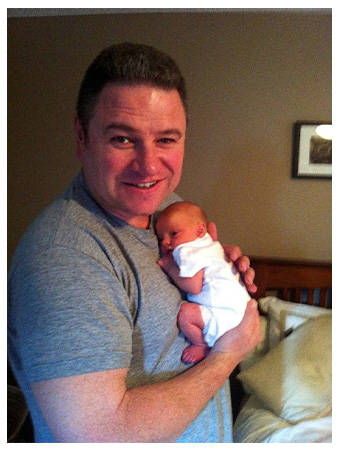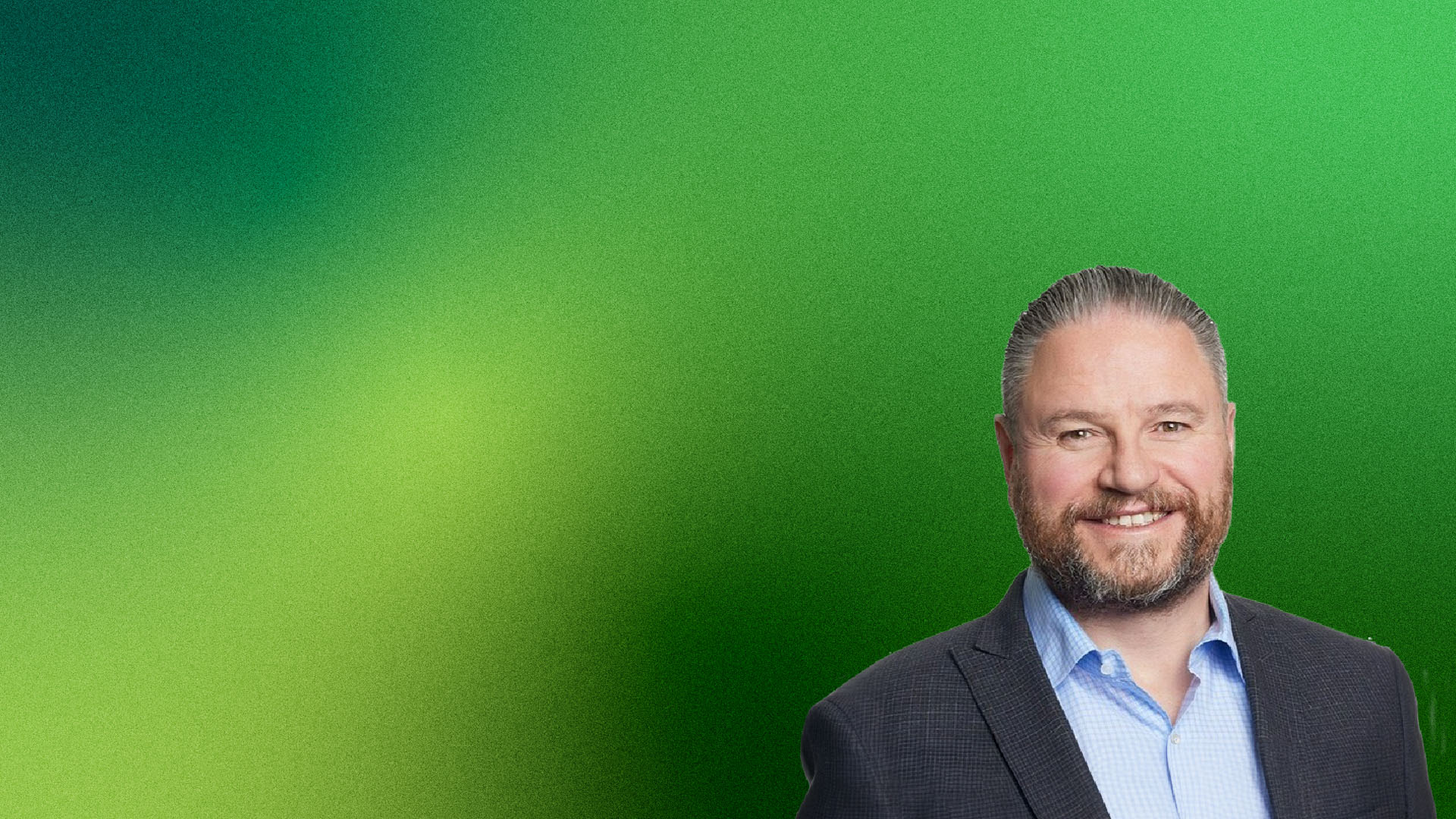Bryce Berry recalls how becoming a father helped him take steps towards unpacking his mental health struggles and leveraging the support system around him.

Hi everyone, I’m Bryce Berry, Chief Information Officer (CIO), based in our Calgary office. You might know me from emails such as “There’s an unplanned outage today.” Or “Please complete your cybersecurity training as soon as possible.”
Today, I’m here to talk to you about my experience with mental health challenges and that means going back about 12 years.
In September 2012, I started the Executive MBA program at the University of Calgary, and it was quite the experience given I had been out of school for about two decades. As well, it just happened to coincide with a promotion at work that resulted in a significant jump in accountability and travel. And add to that, there was the major event of my daughter Autumn being born.
Autumn was our first and only child, and as my wife and I were both in our early 40’s, we were just a little bit older than the other first-time parents at the prenatal classes, so it meant going through a big adjustment.
Here’s a photo of Autumn when we came home from the hospital. In case you’re wondering how she can be so small compared to me, she was 17 days early to ensure she was born on the first day of Fall. And, as for why I look so much younger in the photo, well… try becoming a first-time parent in your forties and see what it does to you :).
In the years since all of this happened, I’ve learned that each one of us carries our own virtual backpack that contains all our stuff, both good and bad, that we deal with on a day-to-day basis. Unfortunately, the good things tend to be forgotten a lot quicker than the bad, so they get taken out of the backpack.
The bad things though? The stress and pressures of life? Those unfortunately accumulate and stick around a lot longer.
So, for me, these three major things (school, work and family) all at once resulted in my backpack overflowing. I found myself reaching a breaking point. I was struggling with the MBA workload, I wasn’t doing well at work, and every now and then, I would suddenly break down and cry when I picked up my daughter and held her. Not a good situation. My backpack was breaking at the seams, and it got to the point where something had to give; so, within a couple of months of the MBA program starting, I was talking to the professors and my fellow students about dropping out.
Instead of dropping out, however, after finally rebelling against my old-school antiquated thinking, I went to my doctor and talked about what was going on. In doing so, I realized that I may have unfortunately inherited some of my attitudes towards mental health from my father and his father before him. It really wasn’t easy breaking free of the mindset that I was weak and just needed to be tougher and push through.
At the same time, as I worked with my doctor on medical options, I talked about my struggles openly with my fellow students, my staff at work and most importantly, my wife, and the thing that started to become very apparent is that I had this massive support system around me that I hadn’t really acknowledged before. Again, this drive to be a big strong independent guy was so imprinted on me that I was blind to the people that cared about me and really wanted to help.
None of the changes were instantaneous but when I learned how to lean on others and accept help, life became better. Stuff came out of the backpack and I started to share the load. Much of the MBA program is group work so my classmates were there to help. At work, I stopped trying to do everything myself and I trusted my team to do their jobs, and shared the load with them.
Most of all though, my wife was there for me.
Fast forward 12 years to today and I’m still on medication. I still try to let my staff do their jobs and thankfully, I’m still married to my wife who has been through all of the ups and downs helping me manage my backpack.
It doesn’t mean that I don’t have day-to-day stress. As a CIO, some stress tends be part of the job, but life is so much better now because I’m equipped to manage that stress.
In closing, I ask that you think about your own backpack. Be more aware of the people around you, including your doctor, who not only can help you but want to help you and make it easier to carry your backpack each day.
Just take that first step and reach out.



